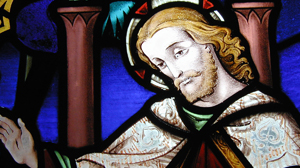Scripture:
Judges 2:11-19
Matthew 19:16-22
Reflection:
St. Pius X was Pope from 1903-1914. These were momentous times, capped by the outbreak of the First World War. He was not a man to wait things out. He was an interventionist, and tried to straighten things out where and when he saw trouble brewing. The over-arching plan for his pontificate was “to restore all things in Christ” ever-ready to get involved when he saw opportunities beckoning or problems threatening. So his life is probably better described in terms of the issues facing him.
We can glean an insight into his mode of operation from our biblical readings assigned for the day. For instance, we have a selection from the book of Judges describing the situation of the Jewish people, once they ceased their wandering over the Sinai desert, and finally settled down in the Promised Land. This, of course, was a long sought goal: a place of their own. But there was a downside to this accomplishment. They had lost their leadership, of the caliber of Abraham, Isaac, Jacob or Moses. Left to their own devices, they were making a mess of things, and getting into lots of trouble, triggered by associating with surrounding nations who were not part of God’s chosen people, buy who had their own religious practices: basically paganism. And, despite their own glorious history under the leadership of their God, the Jews now began, now and again, to worship the false Gods of the people around them, listening to the wrong voices, and paying the penalty of constant military defeats. But God time and again came to their aid by providing them Judges, a strange title used in those days, differently from how we use the term, but meaning “leadership” people—not of the caliber of a Moses or Joshua, but at least enjoying some abilities. But whatever skills the Judges had, they were short-term abilities that would disappear as quickly as they came.
Certainly Pope St. Pius X was someone who appeared on the scene, with his skill-set, at one of those times in history when he was needed. His arrival on the scene was somewhat like that of the young man who presented himself to Jesus, in today’s gospel, eager to be His disciple, possessing the kind of qualities that enabled him to keep the commandments with ease, but when Jesus enlarged the field of skills and abilities for which He was looking in His disciples, He introduced the notion of a calling or vocation, entailing the further step of giving up one’s possessions, but, at that point, the young man found he lacked such a calling.
St. Pius X, however, possessed the kind of qualities enabling him to meet the demands that would be laid on him, as he assumed the leadership of the church. His achievements were impressive, but outstanding among them was his alertness to the emergence of what he called Modernism, in the church of his day, which he described “as the synthesis of all heresies”. This earned him the reputation of being a kind of vigilante guardian of the revelation committed to the church, but, on the other hand, he established the Pontifical Biblical Institute, which has become an outstanding proponent of preeminent studies of the Scriptures. And also to his credit, he re-enlivened the role of holy communion in the lives of many Catholics, who in his day frequented it infrequently, and he also lowered the age for young children to receive first communion. So we appreciate his giftedness to the church.
Fr. Sebastian MacDonald, C.P. is a member of the Passionist Community in Louisville, Kentucky.
